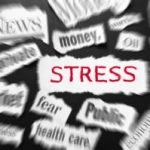Category: Depression

In the United States, suicide is the 10th leading cause of death. The rate increased 33% from 1999 through 2017 according to the Centers for Disease Control and Prevention. The American Foundation for Suicide Prevention states that “suicide most often occurs when stressors and health issues converge to create an experience of hopelessness and despair.” For some, the COVID-19 pandemic could create this experience. The pandemic has produced a condition that has increased many of the risk factors for suicide: feelings of depression and anxiety, increased alcohol and substance use, serious physical health conditions, unemployment, financial crisis, illness or death of a loved one, isolation, and decreased access to care.
Social distancing and isolating at home have limited access to coping skills and reduced suicide protective factors. People no longer have in person contact with behavioral health providers, there is decreased connectedness to support systems, and no access to gyms, art studios, massage therapy, beauty salons, barbers, etc. With fewer physical and creative outlets, healing therapies, and self-care that improves self-esteem, people can feel lost. They also no longer have physical access to places of worship where the social connection was as important as the message or music. It important to remember that we need to maintain physical distancing rather than social distancing – it is necessary to maintain physical separation to not contract the virus but other ways of maintaining social connections are still very important.
Another risk factor that staying at home can bring is closer proximity to abusers. Children of abusive parents who are no longer in school are now with their abusers all day and adults with abusive partners are also with their abusers more often. Adverse childhood experiences are associated with 2 to 3 times more suicide attempts later in life and victims of intimate partner violence are twice as likely to attempt suicide.
Staying at home also increases access to lethal means so it is imperative to either remove guns from the home or ensure they are locked securely and reduce access to other lethal means (such as large amounts of extra medications, excess amounts of alcohol, ropes/cords) in the home for people who are high risk for suicide. For homes with large amounts of prescription medications due to multiple health conditions, a medication safe is recommended.
For people with loved ones who have risk factors for suicide, it is important to know the warning signs. Warning signs include talk of: killing themselves, feeling hopeless, having no reason to live, being a burden, feeling trapped, and unbearable pain; behavior: increase use of alcohol and drugs, looking for a way to end their lives (including internet searches), withdrawing from activities, isolation from family and friends, too much or too little sleep, saying goodbye to people, giving away possessions, aggression, and fatigue; and mood: depression, anxiety, loss of interest, irritability, humiliation/shame, agitation/anger, and relief/sudden improvement. If you notice these warning signs, it is important to ask a person directly if they are having thoughts of suicide and if they are, get them help by contacting their mental health providers, calling a crisis line, taking them to an emergency department, or calling 911. Visit take5tosavelives.org or bethe1to.com to learn how to talk to your loved ones about suicide. Due to COVID-19, people have tried to avoid emergency departments and hospitals but if someone you love is unsafe do not hesitate to get them the help they need.
What are ways to increase coping skills and protective factors in our current climate? Take advantage of telephone or video appointments offered by your mental health providers. If you do not already have mental health providers, now is a good time to seek treatment – practices are still accepting new patients and insurances are covering telephone and video appointments. To reduce worry and fear, limit media consumption about COVID-19. Stick to a routine, stay physically active, get outside with appropriate physical distancing, get enough sleep, limit alcohol, and eat healthy. If you feel you have a problem with alcohol, substances, overeating, or other addictive behaviors – there are online support groups. Connect with loved ones by phone, social media apps, video apps, or writing. Consider safe altruistic ways to connect with others – making masks, running errands for vulnerable loved ones, donations, etc.
How can you get help? Crisis Text Line: text HOME to 741741, they can also be messaged on Facebook messenger.
National Suicide Prevention Lifeline 1-800-273-8255
YouthLine answered by trained teen peer support from 4 pm – 10 pm and by adults from NSPL during other hours 877-968-8491 or text teen2teen to 839863
Childhelp National Child Abuse Hotline text or call 1-800-422-4453
National Domestic Violence Hotline 1-800-799-7233 or text LOVEIS to 22522
Mental Health America Support Group Directory www.mhanational.org/find-support-groups
Lindner Center of HOPE 513-536-HOPE
 Danielle J. Johnson, MD, FAPA Lindner Center of HOPE, Chief Medical Officer
Danielle J. Johnson, MD, FAPA Lindner Center of HOPE, Chief Medical Officer

 By Allison Mecca, PsyD
By Allison Mecca, PsyD








